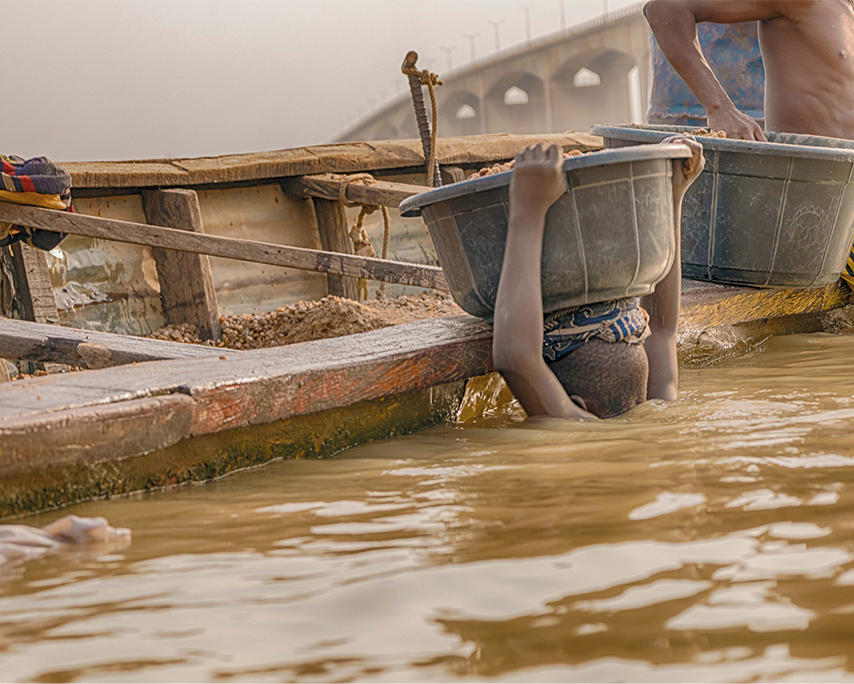World Day Against Child Labour
Confronting the realities even as we honour the innocent
It is alarming that with technological advances, global partnerships, and decades of development work, Africa still struggles to mitigate the disturbing trends affecting children, such as high mortality, food insecurity, poor education outcomes, and vulnerability to climate change. And yet, many of these problems persist or have worsened in some areas. Why?
Many African countries struggle with weak institutions that lack the capacity or accountability to deliver services effectively. Most of these institutions are riddled with corruption that diverts resources meant for healthcare, education, or food distribution. Further, due to policy inconsistency, short-lived political interests often override long-term planning for children and youth. It is for this reason that a child-centred policy agenda usually gets lost in election cycles and power struggles. For example, nutrition programmes might be launched but not sustained due to changes in leadership or misappropriation of funds.
Despite some growth, most African economies rely heavily on external aid and extractive industries, have limited fiscal space to invest in long-term social infrastructure and are vulnerable to global shocks such as pandemics, inflation or commodity price drops. Therefore, investment in children is often among the first to suffer when crises hit. Local governments end up firefighting short-term economic survival rather than investing in long-term child well-being.
The huge disparity between rapid growth and service delivery further exacerbates the situation. Africa has one of the youngest and fastest-growing populations in the world. However, public services have not kept pace, and education, sanitation, and health infrastructure are strained. Even well-designed programmes can be overwhelmed by sheer numbers. A clinic built for 5,000 is serving 15,000. A school meant for 200 children now has 600. The gap between demand and delivery keeps widening.
The case of internal conflicts and the fragility this brings cannot be dispensed with either when it comes to the alarming crises children face. Over 20 African countries face some form of internal conflict or fragility. This disrupts healthcare and education systems, family structures, community support systems, and food production and distribution. In fragile states like the Democratic Republic of the Congo or South Sudan, systemic child protection becomes nearly impossible. Entire generations grow up in trauma and instability.
Let us not forget that the external development models and cultural disconnect Africa continues to face even in the 21st century. Many interventions are donor-driven and modelled after Western systems, which in most cases has led to programmes that lack local relevance or buy-in. Additionally, there has been a lot of focus on outputs, such as school enrolment, instead of holistic outcomes like learning, belonging, or cultural identity. It is important to note that when development overlooks local contexts, it becomes performative. A child may be in school but not learning in their language, culture, or value system, eroding both efficacy and identity.
A part of the consequence of the wrong development model is the limited civic participation and weak knowledge economies that Africa experiences today. There is often little structured peer review or accountability in policymaking. Furthermore, low research, local publishing, or documentation investment affects how solutions are created and measured. Without a thriving local knowledge ecosystem, African professionals and parents cannot meaningfully shape or critique child-related policies and practices.
Finally, it is hard not to include climate crisis and environmental vulnerability. Although Africa contributes the least to global emissions, it still suffers the most from climate change, facing rising drought, floods, crop failures, and displacement, consequences that can be attributed to all the other issues mentioned above.
We know that systems fail when they are not grounded in the lived experiences of those they are meant to serve. Laws, however noble, mean little if not enforced with compassion and consistency. Publishing another policy without context, conversation, or community engagement is simply moving paper. We must accept this uncomfortable reality that the problem is not just broken systems but also broken priorities. Additionally, there is a need to ground development in the African context, build resilient institutions, nurture local expertise, and prioritise children, not just as beneficiaries but as citizens-in-the-making.



